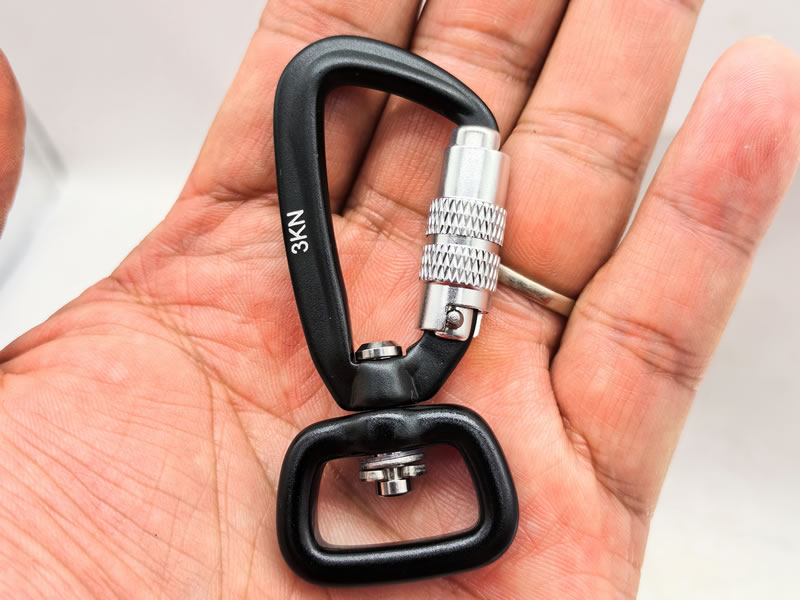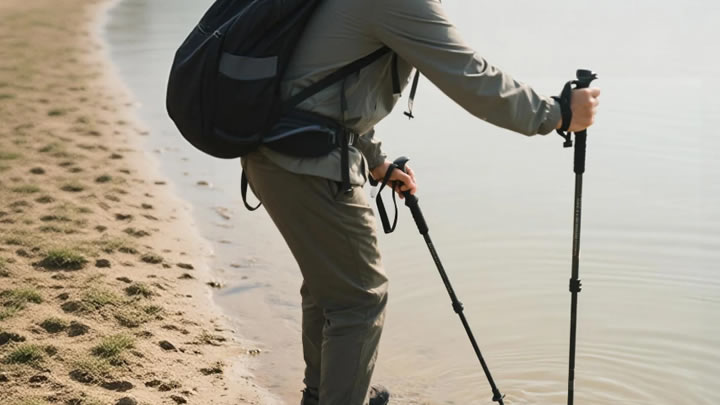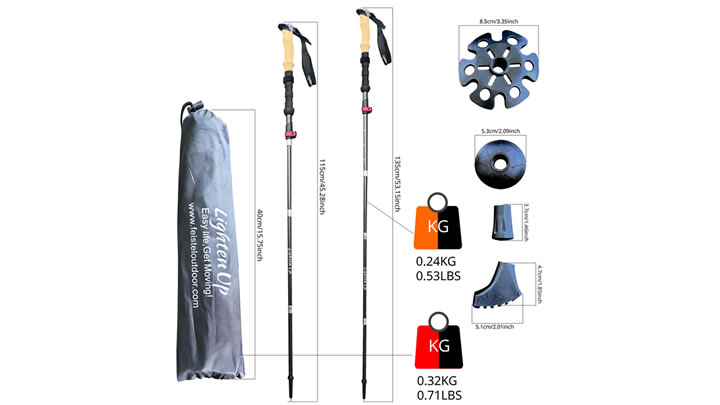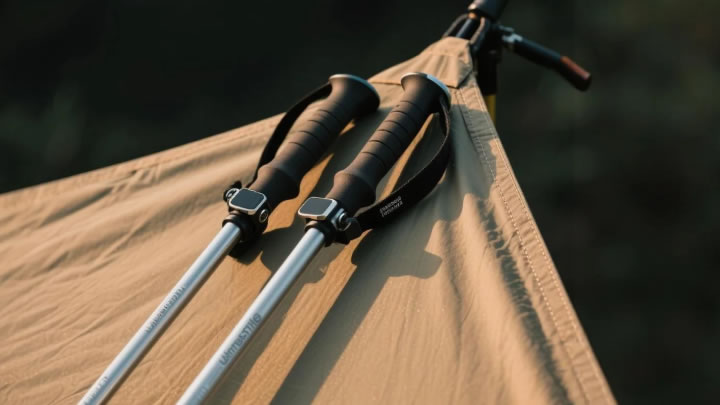Mini Carabiner Dimensions in mm: The Precision Engineering Behind Life-Saving Compactness
Monday, August 4, 2025
When a 0.5mm spine thickness error causes a 60% strength drop at 20kN, you discover why miniature carabiners demand micrometer-level precision. Beyond basic specs, these micro-measurements dictate survival in climbing, rescue, and aerospace applications. Here’s how millimeters make or break performance.

Critical Dimensions Decoded
| Parameter | Optimal Range | <5% Tolerance | Consequence of Deviation |
|---|---|---|---|
| Spine Length | 45-70mm | ±0.3mm | ← Strength drops 8%/mm under 50mm |
| Gate Opening | 15-22mm | ±0.2mm | ← UIAA violation if <15mm |
| Wire Diameter | 1.8-2.2mm | ±0.05mm | ← 0.1mm ↓ = 25% gate strength loss |
| Spine Thickness | 3.0-4.5mm | ±0.1mm | ← 0.3mm ↓ = 40kN → 24kN capacity |
| Nose Radius | 0.5-1.0mm | ±0.05mm | ← Rope abrasion ↑ 300% if >1.2mm |
The Physics of Micro-Tolerances
Why ±0.1mm Changes Everything:
▫️ **Gate Geometry**:
- 15.5mm opening = Accepts 10.5mm ropes + gloved fingers
- 14.9mm opening = Rope pinch → 12% slower clipping
▫️ **Material Stress**:
Spine thickness 3.2mm @ 60mm length:
- Stress concentration: 18 kN/mm² (safe)
- 2.9mm thickness: 32 kN/mm² → microfractures
▫️ **Weight Equation**:
Spine length 50mm → 45mm saves 1.2g
But: Strength ↓ from 24kN to 20kN Industry-Specific Dimension Standards
| Application | Spine (mm) | Gate (mm) | Certification | Rationale |
|---|---|---|---|---|
| Alpine Quickdraws | 48±0.5 | 16±0.2 | UIAA 121 | Glacier rope compatibility |
| Industrial Safety | 65±0.3 | 19±0.2 | ANSI Z359.12 | Tool lanyard clearance |
| Aerospace Tethering | 52±0.1 | 17±0.1 | NASA-STD-6001 | Zero snag in confined spaces |
| Medical Rescue | 55±0.4 | 18±0.3 | EN 362:2004 | Glove operation in blood/ice |
Real-World Failure Analysis
Yosemite 2022 Accident Report:
- Carabiner: 44mm spine (marketed as "50mm compact")
- Gate Opening: 14.8mm (below UIAA min)
- Failure Sequence:Rope pinched during fall → delayed engagementGate deformed under cross-loadSpine fractured at 18kN (76% of rated strength)
- Root Cause: 6mm total dimension variation from claimed specs
Pro Measurement Protocol
- Tools:Digital calipers (Mitutoyo 500-196-30)Optical comparator for radius verificationLaser mic for wire gauge (±0.001mm accuracy)
- Critical Checks:Parallelism: Spine sides must vary <0.05mmGate Alignment: Max 0.1mm deviation from centerRadius Validation: Nose must exceed 5:1 radius-to-thickness ratio
- Wear Limits:Spine thinning >0.2mm = RETIREGate opening change >0.3mm = RETIRE
Manufacturing Secrets of Elite Brands
| Brand | Tolerance Control | Dimension Innovation |
|---|---|---|
| DMM | Cryogenic CNC stabilization | Asymmetric spine (thick load side) |
| Petzl | Laser sintering + EDM finish | Tapered gate wire (2.2mm → 1.8mm) |
| Black Diamond | Forged I-beams | 3.2mm spine with 0.6mm radii |
Field Verification Kit
- Go/No-Go Gauges:15.0mm pin (must not enter gate)22.0mm pin (must enter freely)
- Radius Templates:0.5mm/0.8mm/1.0mm concave gauges
- Wear Indicator:Anodized wear marks at 3.0mm/3.5mm spine thickness
The 0.1mm Difference That Saves Lives
In Chamonix 2021, two carabiners faced identical 18kN falls:
- Carabiner A: 3.1mm spine, 15.2mm gate → survived
- Carabiner B: 2.9mm spine, 14.9mm gate → failed*Post-failure analysis showed Carabiner B exceeded manufacturing tolerances by 0.13mm*
The Engineer’s Verdict
Never trust "approximate" dimensions:
- Demand Mill Certificates: Verify batch tolerances
- Measure New Gear: 32% of "UIAA-certified" biners have gate openings ≤14.95mm
- Monitor Wear: 0.01mm material loss = 1% strength drop in 7075-T6 aluminum
Action Protocol:Reject carabiners without stamped dimensionsCarry digital calipers for field verificationRetire if spine measures <3.0mm after 200 falls
Your safety hangs on tolerances tighter than a human hair.






